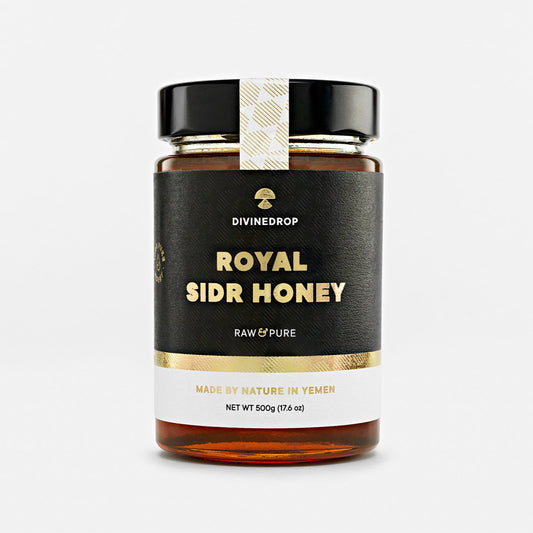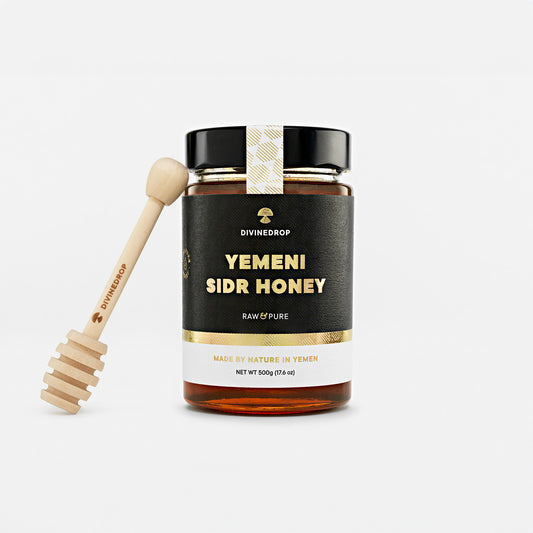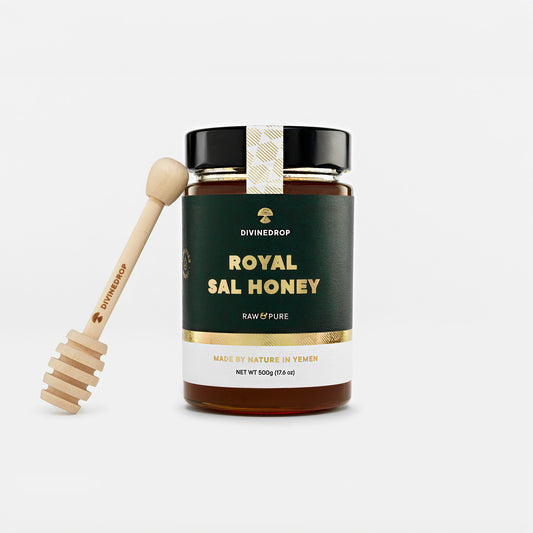Yemeni Sidr honey is not just a sweetener; it's a testament to the rich natural heritage and traditional beekeeping expertise of Yemen. Harvested from the nectar of the Sidr tree, known for its therapeutic properties, this honey is a product of the unique interplay between Yemen's indigenous bee species, Apis mellifera jemenetica, and its diverse landscapes. The meticulous care in harvesting, coupled with traditional, eco-friendly beekeeping practices passed down through generations, ensures a product of exceptional quality. This introduction aims to delve into the origins, characteristics, and healing virtues of Yemeni Sidr honey, reflecting on its historical significance and the sustainable legacy of Yemeni beekeeping.
Origins of Yemeni Sidr Honey
Yemeni Sidr honey, a prized natural treasure, is harvested by the indigenous Apis mellifera jemenetica bees from the nectar of the ancient and medicinal Sidr tree (Ziziphus Spina-Christi). Flourishing in Yemen’s unique valleys, plains, and mountains, these trees are sustained by the land’s optimal soil and climate, producing a honey renowned for its effective therapeutic qualities and enchanting taste.
Characteristics of Yemeni Sidr Honey
Yemeni Sidr honey stands out for its rich texture, vibrant golden hue, and exceptional viscosity, paired with a deep, floral taste that echoes the essence of Sidr blossoms. Variations in its characteristics are influenced by its regional origins—be Do'ani, Jardani, or Usaimi—and the harvest season, leading to distinct classifications like Sidr Baghyah or Marbai honey.
Healing Virtues of Yemeni Sidr Honey
Yemeni Sidr honey is celebrated for its extensive health benefits, which include:
- Antibacterial Power: Effective against antibiotic-resistant bacteria, aiding in respiratory and skin infection treatment.
- Wound Healing: Accelerates recovery from burns, ulcers, and injuries with minimal scarring.
- Immune Boost: Antioxidants strengthen immunity and reduce oxidative stress.
- Digestive Aid: Improves digestive health and treats ulcers with its anti-inflammatory properties.
Preliminary research hints at benefits for heart, liver, weight management, skin health, and the nervous system, but further studies are necessary.
The Legacy of Yemeni Beekeeping
Rooted in the ancient traditions of the Sheba and Hadhramaut civilizations, Yemen’s beekeeping practices are a legacy of centuries, emphasizing organic, eco-friendly methods. Departing from conventional stationary apiaries, Yemeni beekeepers embrace a nomadic approach, ensuring their honey remains pristine and free from chemical contaminants.





